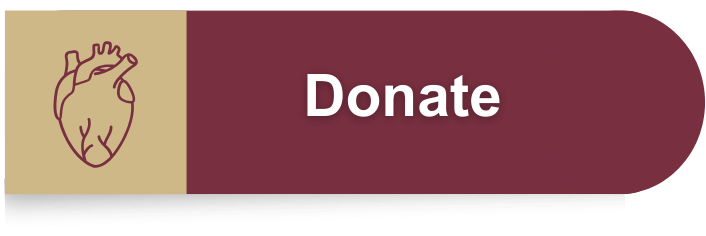Sleep is an essential component of life. Sleep allows proper brain repair, and assists in moving short-term memories to long-term storage.
Chances are you are one of 300,000,000 Americans who recently missed out on one hour of shut-eye. * I hear you, how important can one hour of sleep be? Well, to convince you, I would like to share a few statistics with you.
Short sleep (less than seven hours per night) is associated with obesity, lower physical activity, and smoking. Also, lower sleep is associated with increased injury risk in young athletes. Finally, lower sleep duration is associated with an increased risk of car crashes.
However, these data do not point out the directionality of these associations (people with poor health habits during the day may also not get enough sleep). Two statistics that do support short sleep as a causative factor include a higher heart attack (1,2) and car accident incidence following “spring forward”.
Thankfully, this forward clock change only comes once a year. You can move to (sunny) Hawaii or Arizona to avoid it. Most of us can focus our attention on the other 364 days of the year. We can also try to progressively shift bedtime earlier during the week leading up to “spring forward.”
Good sleep habits
The Centers for Disease Control and Prevention (CDC) recommends at least seven hours of sleep each night. About 35% of Americans get fewer than this recommendation. Let’s talk about how to improve sleep duration and quality.
Amount of light in bedroom = Minimum to none
Temperature of bedroom = ~65°F
Noise level = below the loudness of a normal conversation (50dB)
Also, having a standard daily routine will help. This means going at least one hour before bed without eating or exercising to unwind. Related, make the bedroom just for bedroom activities (like sleeping), and avoid hanging out on your bed to work on your laptop or play on your phone. Bonus: set an alarm about nine hours before your morning alarm to begin your daily unwinding routine.
Not surprisingly, daily physical activity will also improve sleep quality. Brad Stulberg, an author of the book Peak Performance, has pointed out that it is important to work hard during activities (e.g., working, performing, exercising) and relax during downtime while avoiding a constant blend of tired attempts to be productive.
Light in the bedroom
Blue light from phones can impact melatonin release, a hormone that signals to your body that it is time for sleep. Importantly, this blue light will keep us awake and alert during the night. This light exposure can also affect your mood and brain function. So, it is best to put electronics away at least an hour before bedtime. If this isn’t possible, you could invest in orange glasses before bed, specifically designed to block blue light.
Light pollution outside may sneak into the bedroom. An easy fix is to install blackout curtains. If these don’t fit the style of your bedroom, consider regular curtains that are thicker or have a darker shade.
Temperature of the bedroom
Our body temperature naturally increases throughout the day and quickly cools in the late evening. Having a bedroom too hot can stop your body from releasing heat before bedtime, altering your normal body temperature rhythm. Consider a cool shower before bedtime to cool off and help you fall asleep.
It is up for debate if bedroom temperature or impaired body temperature regulation are associated with insomnia, but we do know that cooler environments improve sleep quality.
Noise in the bedroom
Noise levels should be below the loudness of a normal conversation level. The noise level of your surroundings may not be under your own control (e.g., traffic, trains). But if it is possible to reduce noise, you should do so. Though it depends on comfort level, you could consider investing in earplugs if you want full silence.
Alcohol and Caffeine
The short answer is neither before past the late evening.
Question: Alcohol makes me feel relaxed, should I drink before bed?
Answer: Though alcohol may help you fall asleep quickly, it can impair sleep quality and cause you to wake up later in the night.
Question: I drink a lot of coffee, do I need to avoid caffeine in the evening?
Answer: The National Institutes of Health suggests avoiding caffeine in the late afternoon and evening.
Wrap-up
Lastly, you may find that getting proper sleep throughout the week may reduce the need for “catching up” on sleep on the weekends. This is good news because most experts agree that you cannot, in fact, make up for lost sleep.
I leave you with three practical tips:
1) prepare a dark, cool, and quiet area for rest
2) set an alarm nine hours before your morning alarm to wind down and stop using electronics
3) try to do this at the same time each day (yes even on the weekends)
As always, feel free to share your thoughts, comments, and questions.
Thanks for reading.
-Joe
Editor(s): Austin Robinson, PhD
Curious to learn more? Check out these related resources.
*Hawaii does not participate in DST. In Arizona, only the Navajo tribe members participate because the reservation extends into New Mexico and Utah (states that observe DST). Further, the Hopi Nation is embedded within the Navajo reservation but because this area does not extend into other states, DST is not observed in this sub-area.
The New York Times recently published the importance of reducing light before bedtime for children to help melatonin release.
Our sympathetic nervous system plays a major role in blood pressure control at rest and during mental and physical stress (like exercise) (one minute video). Did you know this system also has a key role in lowering our blood pressure during sleep? Click here for a visual representation of blood pressure levels during the day and night.



